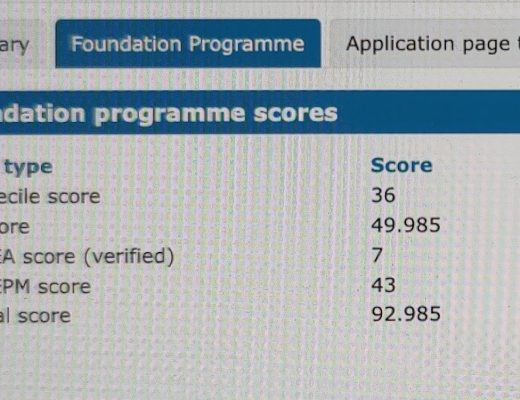Situational Judgement Tests in Medical Recruitment
Dr Mahibur Rahman
Over the past few years, SJT questions have become more popular as part of medical recruitment processes. The first medical specialty to introduce SJT questions was the GP Recruitment process – the professional dilemma paper makes up 50% of the marks from the GP Stage 2 assessment, and the use of situational judgement test questions has shown to have good correlation with performance in GP training. The National Recruitment process for GP ST Entry in the UK has been using SJT questions since 2006 (piloted), with the SJT exam scores actually contributing since 2007.
They have become increasingly popular in other parts of medicine. SJT questions were trialled as part of the CMT recruitment process in 2009, for recruitment to Public Health Specialty Training for the past 2 years, and are now part of the recruitment process for the Australian GP Training (AGPT) programme via the GPET Stage 2 assessment. In the future, they will also be used as part of Foundation Programme 2013 entry in the UK after a successful pilot in 2011 showed good correlation to other methods of assessment, and increased reliability compared to “white space” questions. They are also being considered for some surgical specialties.
There are two main types of SJT question used: ranking, and selection.
Ranking SJT questions
In this type of SJT question, the candidate is given a scenario that they might encounter in the job they are applying for, with a work based scenario. This can involve an ethical dilemma, a difficult decision, issues with other team members, or issues relating to patients. Questions are written to test specific competencies essential for that job. The candidate will be offered a set of possible responses (usually 5), and must rank the options from 1 to 5, with 1 being the best (or most effective) option, and 5 being the worst (or least effective) option. This type of question is usually marked using a keyed response mark scheme – the total marks awarded for an answer depends on how close the answer is to the “best response” or “model” answer, as determined by a panel of experts. This means that a sensible answer that is not perfect will still receive a high score.
Selection SJT questions
In this type of SJT question, the candidate is given a scenario with many more options to choose from – up to 10 options in some cases. From these, they have to select 2 or 3 options (depending on the question) that TOGETHER make the best overall response to the scenario. These do not need to be ranked – so a candidate might pick options A, D, and G, but would not need to rank these 1st, 2nd and 3rd. Marking for this question type depends on the specific exam. In some cases, these questions are also marked using a keyed response scheme, in others, there is one “correct” answer, with a set number of marks for each of the correct responses selected.
Most of the current examinations using situational judgement test questions tend to have more ranking SJT questions compared to selection SJT questions.
Preparing for Situational Judgement Test questions
This type of question is designed to test judgement and decision making ability, and to explore whether a candidate meets specific job related competencies. They do NOT test knowledge in the way a clinical exam does. So how can you improve your performance in an SJT exam? Here are a few simple tips:
Learn the competencies
Each SJT question is written to map to one or more specific competencies. If you understand which competencies are being assessed as a whole, it becomes easier to spot which ones are being tested in any given question. This can make it easier to rank items that demonstrate the competencies higher. The specific competencies vary depending on the specific exam – so make sure you have read the person specification for the job you are applying for. As an example, some of the competencies being tested in the GP Stage 2 exam include team working, empathy and sensitivity, communication skills, coping with pressure, and professional integrity.
Understand the difference between the two question types
Ranking questions are asking you to compare each option with the others – they are NOT asking you for “good” or “bad” options alone. Sometimes all 5 options may be poor, or they may all be beneficial, you are looking for which one is comparatively better or worse than the other options. Selection questions are NOT asking you to rank anything, just the best 3 options taken together. This allows you to eliminate some options as they cannot work together. Once you have worked out the 3 best options that work together, you do not need to waste any time deciding which of these 3 options is better or worse than the others in your final answer.
Practice, practice, and practice to time
Because of the way situational judgement test questions are marked, you can often get a high score simply by attempting every question – so getting used to the pace of the real exam is really helpful. If you answer 50 questions imperfectly, you will usually get a higher score than someone that answers 40 questions perfectly. Some candidates struggle to finish in time, especially when they spend too long on a specific question trying to get the “perfect” answer. Get used to the timing, and then try to be strict with your time management – have a sensible go at every question to maximise your score. This type of question is often new to many students and doctors – you have all sat numerous clinical exams with single best answer and extended matching questions, but SJT questions are still relatively new. The more you practice, the more you get used to understanding, evaluating and answering sensibly in a limited amount of time.
Summary
Situational judgement tests are increasingly common in medical recruitment – from medical school entry (UKCAT), to recruitment to postgraduate training. They have been shown to be a valid and effective way to select candidates, especially when used as part of a holistic recruitment process that also takes into account knowledge and the right experience for the job. Understanding how the questions are written and marked, and practicing to improve your examination technique can help you improve your performance on the day.
Further reading:
Tackling Situational Judgement Tests – BMJ Careers – inlcudes samples of both types of SJT question
Emedica were the first company to include situational judgement test questions as part of their GP Stage 2 online revision service. We recently launched the first dedicated situational judgement test preparation package with 115 high quality SJT questions. This includes both types of SJT question, with detailed explanations and answers, and includes a timed 25 question mini mock SJT exam.





No Comments